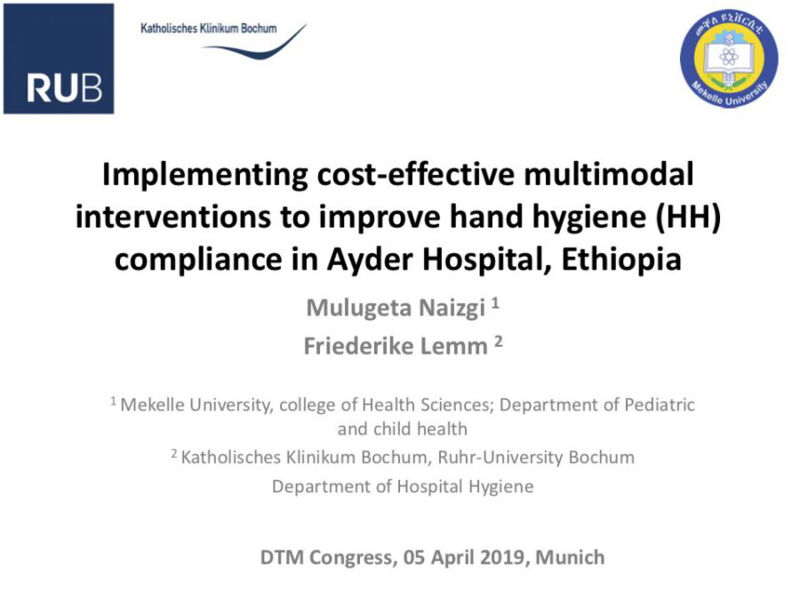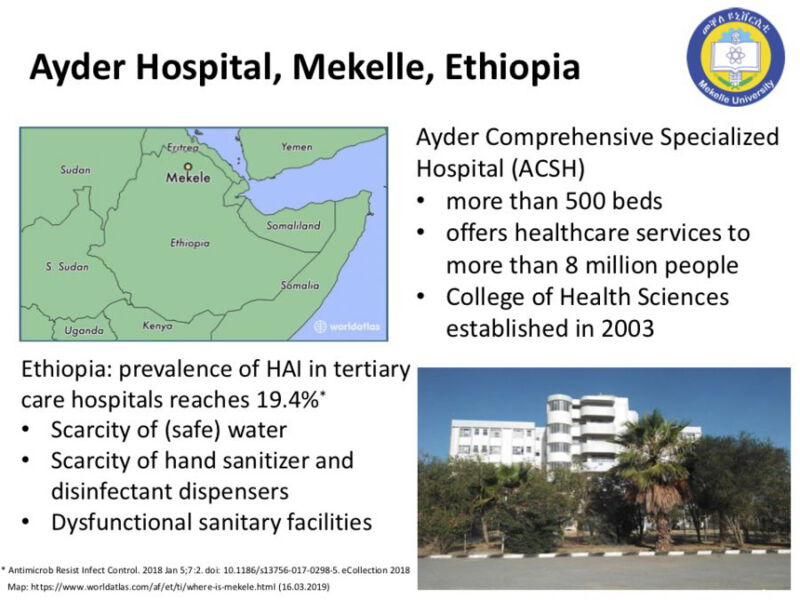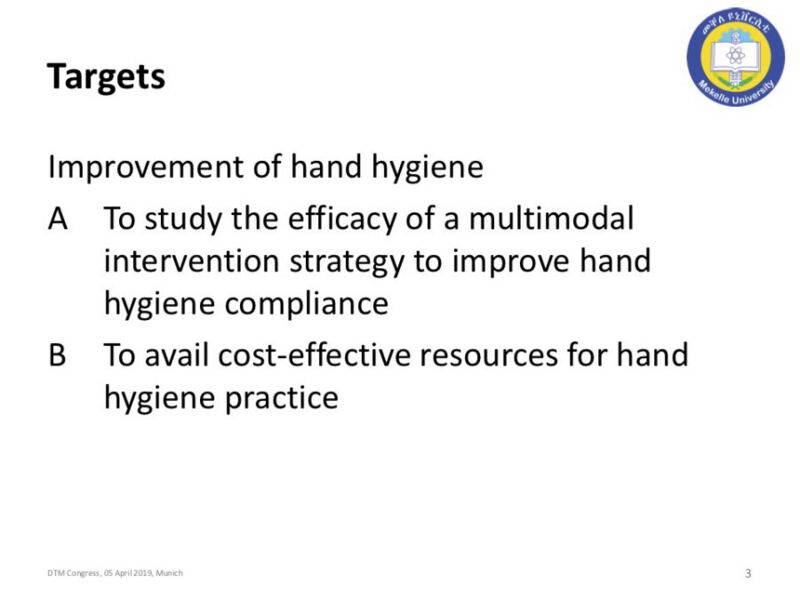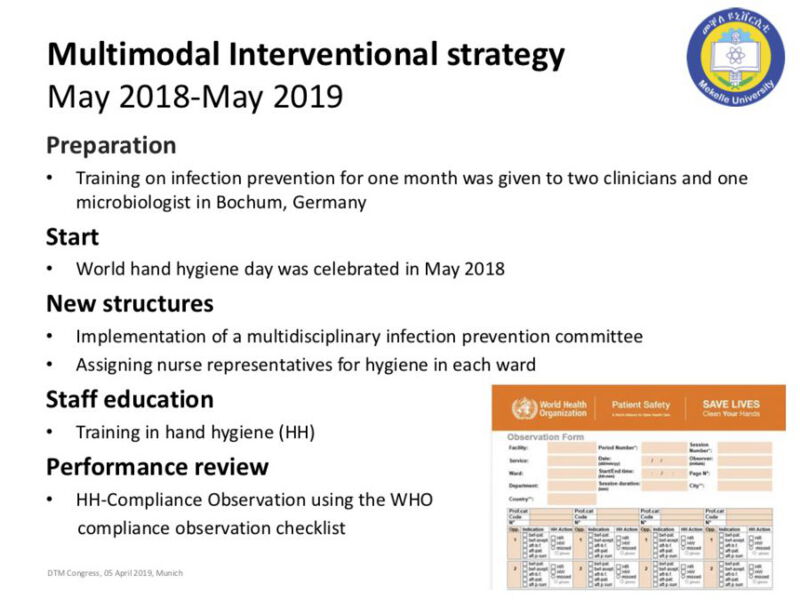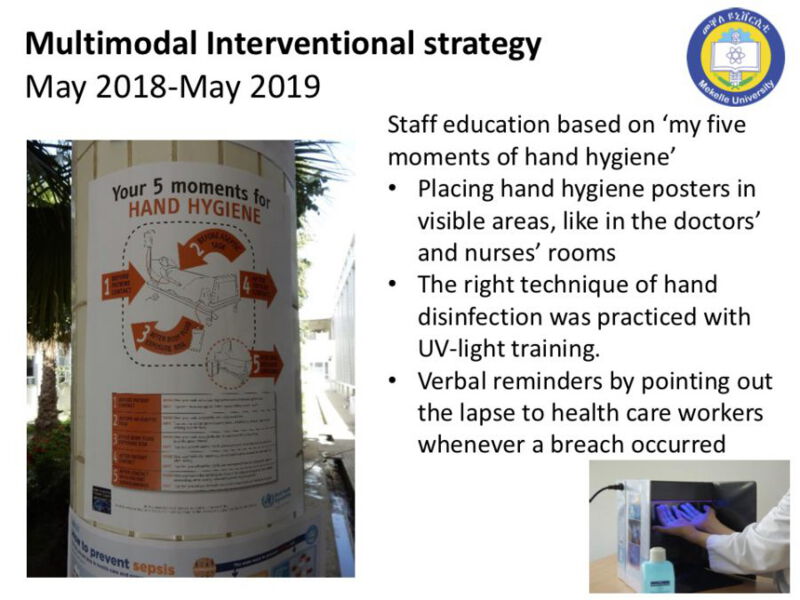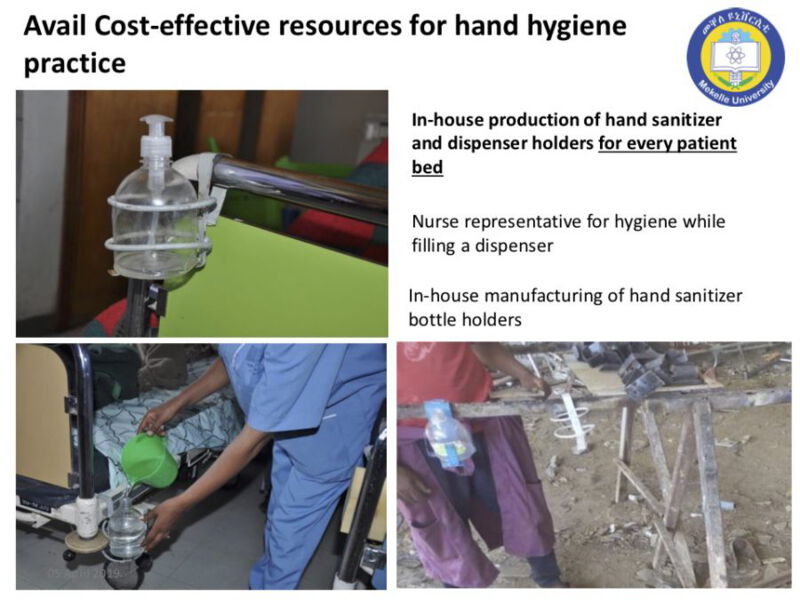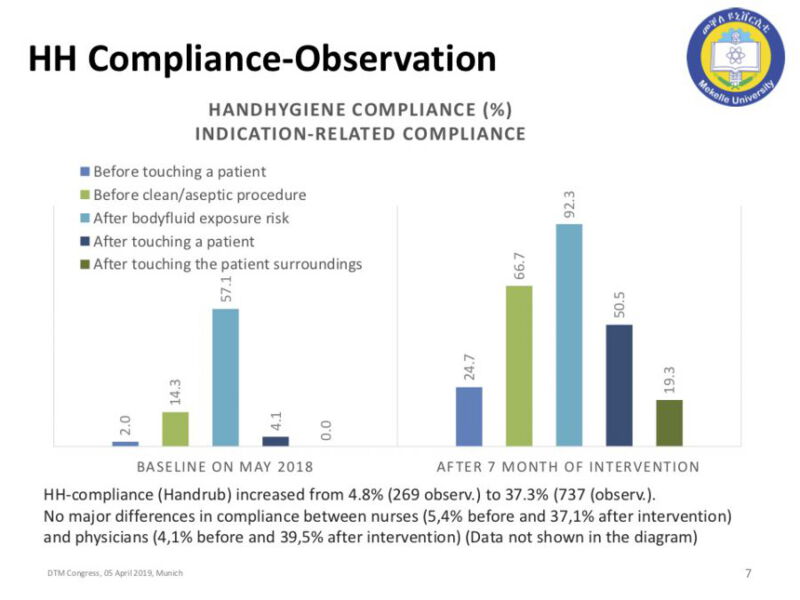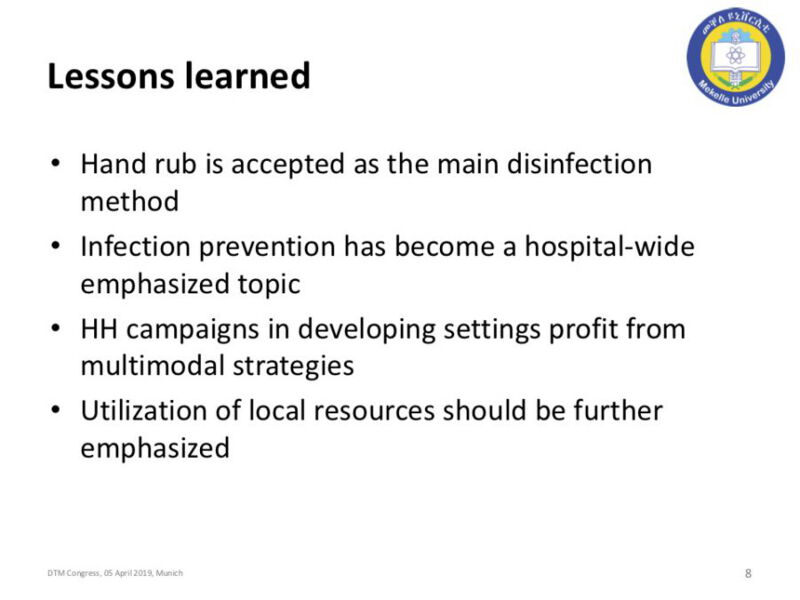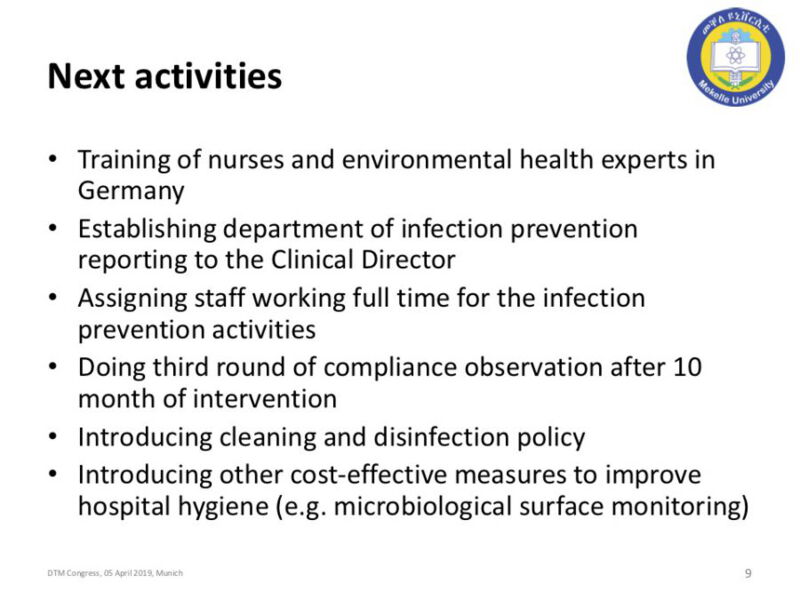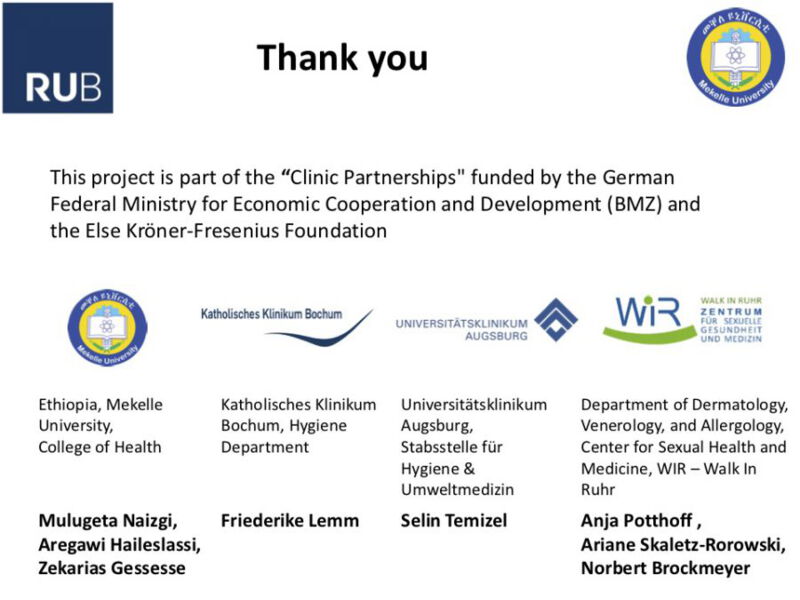German Ayder Hospital Hygiene Project
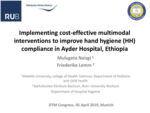
ICU Courses
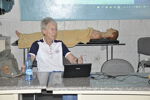
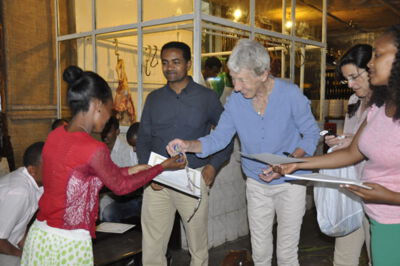
1st Intensive Care Refresher Course for Nurses
Ayder Hospital, Mekelle. 18.4.-23.4.2016 and 2.5.-7.5.2016
During my last stay in Adult Intensive Care Unit (AICU) in Ayder Hospital, Mekelle, in October-December 2015 I agreed with the AICU nurses, with the matron Mrs.Hareya, and with the Medical Director, Dr.Amanuel, to conduct a refresher course in order to improve the standard of AICU further. Since none of the nurses working in AICU got a formal training in intensive care nursing and since several new nurses were attached to the ICU it seemed to me very important to improve the theoretical knowledge and practical skills of the nurses specially since they work mostly without guidance of a trained intensivist doctor.
Lecture topics and practical exercises were chosen according to the most common problems faced in AICU during the last years.
Lecture topics were: 1. Basics of respirator management with practical exercises
- Fluid- and electrolyte balance and imbalances including hypovolemic shock
- Pharmacology of common critical care drugs (inotropes, vasopressors, sedatives, analgesics, including their practical management.
- Management of head injuries
- Enteral feeding including feeding regimes
Practical exercises included basic intensive care nursing procedures, preparation of an emergency trolley, CPR with mask ventilation, positioning of patients, preparation for admission of an emergency patient, and infection control procedures.
Also included were the importance of re-assurance of patients and psychological guidance of patients and relatives as well as some ethical considerations (poor prognosis patients, brain dead patients).
The participants of the course were divided into 2 groups (15 in the 1st group and 16 in the 2nd group) since the total number was too big for useful practical exercises.
The teaching was shared by Sr.Teresa Pastor, an experienced Spanish ICU nurse, Sr.Doris Batke, an experienced German ICU nurse, Dr.Judith Rendon, the nutritionist from Ayder Hospital and me.
The organization of the course was taken over by Mrs.Hareya with the help of Mr.Hailay, the former head nurse of AICU, and was excellent. The duty rosters of the participants were adjusted that they were off duty for the time of the course, writing and teaching materials were bought and tea breaks (with excellent snacks) organized. The lecture handouts which I sent to Mrs.Hareya beforehand were photocopied and bound in a nice booklet. Rooms for lectures and practical exercises were booked.
The course started with an entrance examination. (MCQ’s about the course contents). The result of the test made the nurses better understand their short comings.
Both groups participated actively and lively in the lectures and practical sessions. All nurses were present from morning 8.30am until afternoon 5.30pm from Monday to Saturday. Even during the tea breaks discussions continued.
At the end of the course all participants did a post test (MCQ about topics covered in the course). The result of this test showed that all participants had improved their knowledge by 100-200% compared to the entrance test.
The evaluation paper distributed at the end of the course showed that all participants were satisfied with the course contents. Also the ratio between lectures and practical sessions was in average rated satisfactory (some wanted more lectures, some more practical exercises). All nurses stated that the course will help to improve their performance in AICU.
At the end of the course all participants and teachers were invited for lunch in a traditional restaurant. At this occasion Dr.Amanuel presented the certificates for successful participation in the course to all nurses.
Conclusion:
Sr.Teresa and I had the occasion to work with the participants of the course in AICU for some days after the end of the course. Both of us were surprised that this short 1 week course resulted immediately in 1. improved nursing care and 2. in more self-confident and independent actions like respirator weaning, fluid management according to central venous pressure measurement and supervision and adjustments of continuous inotrope administration. We think that these newly acquired skills may lead in the near future to decreased morbidity and mortality in AICU when the nurses get the opportunity to deepen and regularly refresh their knowledge and their skills.
Therefore we agreed with Mrs.Hareya and Dr.Amanuel to carry on with a 2nd refresher course in January 2017. At the same time Witten- Ethiopia through Mr.Ahmedin Idris, MD, agreed to sponsor ICU books for all AICU nurses.
Dr. Reintraut Burmeister-Rother MD
Specialist for anesthesia and resuscitation (retired)
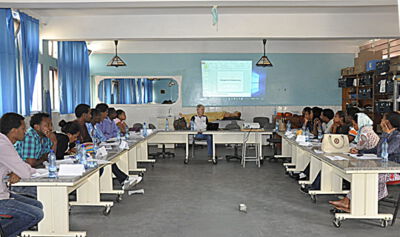
Report on
2nd Intensive Care Refresher Course for Nurses
Ayder Hospital Mekelle 23.1. – 21.2.2017
On request of the nurses of AICU and in agreement with Mrs.Hareya and Dr.Amanuel we (Sr.Teresa and I) conducted a 2nd intensive care refresher course for nurses in Ayder Hospital in order to improve the quality of critical care further.
After the experience of the 1st refresher course we chose this time less formal lectures and more practical exercises and scenarios.
Lecture topics were: Physiology of respiration
Renal physiology
Antibiotics
The other topics were each combined with scenarios and were:
SIRS – Sepsis – Septic Shock
Management of postoperative patients
Post angiography management in ICU
The restless critical ill patient including revision of analgo-sedation
Care for the cranial injury patient
CPR, preparation of emergency trolley
Fluid balancing, monitoring IV lines, CVP measurement
Team work in ICU
The participants of the course were all nurses from AICU and 5 nurses from pediatric ICU. They were again divided in 2 groups to have reasonable numbers for the practical exercises.
The organization oft he course was again taken over by Mrs. Hareya and her staff and was again perfect. Lecture hand outs were sent by me beforehand and distributed to the participants. Rooms for lectures and practical exercises were booked and tea brakes organized.
The teaching was like in the 1st course shared by Sr.Teresa Pastor and me.
The course started with an entrance examination (MCQ). Some questions were related to the topics covered in the 1st course and some to the contents oft he 2nd course. The results of the test were generally poor and it was obvious that almost all participants found it difficult to concentrate for 1 hour since the first half of the questionnaire was answered much better than the 2nd half. After the discussion of the test the nurses understood their various short-comings.
Both groups participated very actively and lively in lectures and practical sessions already from the 2nd day onward. (During the 1st course most oft he nurses were too shy to participate actively or to ask questions).
The results of the post test showed a great improvement since almost all participants scored 100-200% more compared to the entrance test.
At the end oft he course all participants and teachers were invited for dinner in a traditional restaurant. The certificates were presented after finishing the course due to a delay in printing.
Conclusion:
I had the occasion to work with the participants of the course in AICU as well as in PICU for almost 3 weeks after the end oft he course. (Sr.Teresa had to leave earlier).
It was a pleasure to see how much the nurses gained from this course. What impressed me most is that in AICU is now an understanding that nursing care of critically ill patients needs continuous presence of the nurse on the bed of the patient. Most of the nurses did the weaning from ventilators, fluid balancing according to CVP measurements, supervision and adjustments of inotropic drug administration and sedation when acutely necessary on their own.
Also the documentation improved as well as the communication with co-nurses and residents. Still more improvement is needed for hand over procedures from shift to shift as well as in the active participation in the ward rounds.
Since AICU has now an own consultant (Dr.Kibrom) who will be almost continuously in ICU there is a very good chance that further improvements will occur in shorter periods of time. His presence will also be very advantageous for the training of residents assigned to ICU. As soon as the residents gain more practical knowledge and skills in critical care there will be less conflicts between nurses (who have more practical skills due to the repeated training) and doctors. At the same time the nurses will have continuous support from Dr.Kibrom which is very important to improve the quality of critical care further by a functioning co-operation between residents and nurses.
We (Sr.Teresa and I) plan in agreement with Mrs.Hareya and the ICU nurses to continue with a 3rd refresher course end of 2017.
Dr. Reintraut Burmeister-Rother 13.3.2017
Teaching Psychiatry in Ayder
Report 2016: mental health issues in Ethiopia
Second visit of Ayder Referral Hospital in Mekelle in February 2016 Christiane Kost, M.Sc., Ethiopia-Witten e.V.
1. Latest developments of Mental Health Service in Ethiopia
There ́s still a low level of awareness in Ethiopia about mental illness and there are many severe problems concerning the treatment, i.e. delays in seeking treatment and consequent prolonged duration of untreated mental disease. Patients are often in a severe and chronic state, and complications of syndroms can be seen, which are rare in Western countries nowadays. There ́s a lack of adequate treatment availability, because psychiatric care and psychological support is still extremely limited. Consequently the attention of the mental health professionals is focused on the severe and acute cases, like patients suffering from fluid psychotic symptoms. Mood disorders like depression, anxiety and posttraumatic stress disorders are widespread, but can ́t be treated sufficiently.
Things are changing step by step in a positive way. With the help of the psychiatry residency program in Ethiopia, the number of psychiatrist increases and is actually at about 70 psychiatrists in the whole country. There ́s also a growing number of graduated clinical psychologists working in Ethiopia according to the new Masters in Clinical Psychology programs.
Mental health care remains relatively centralized. In Addis Abeba the Amanuel Hospital is still the only psychiatric hospital in Ethiopia, but there are plans to open a second hospital in Addis Abeba soon, as Dr. Dawitt Assefa, the CEO of Amanuel Hospital told me. He kindly showed me the Amanuel Hospital during my stop-over in Addis Abeba and told me about the difficulties of his daily work with it ́s limited treatment possibilities.
As substance abuse is a serious problem with addiction to alcohol and khat as the mainly used drugs, there are also new possibilities of long time therapy. Long time therapy means a possibility to get therapy two to three months in a rehabilitation center. A substance rehabilitation center for male patients was opened in summer 2015 in Mekelle. In Addis Abeba, there ́s also a new center for homeless men with substance abuse, the “Shelter” had opened just the day I had been there with Dr. Dawitt Assefa and Dr. Ruth Tsigebrhan.
2. visit of Ayder Referral Hospital, February 2016
From all mental health professionals, I had a warm welcome during my second visit in Mekelle. In a first meeting after arrival I met Dr. Gebrzgi Gidey (psychiatrist from Ayder Hospital), Kenfe Tefay and Tilhuan Belete (mental health professionals and lecturer at Mekelle University). We discussed the schedule of the next days. It was also very nice to meet Dr. Markos Tesfaye, a psychiatrist and professor from Gimma University.
Activities of the following days:
2.1. Psychotherapy Workshop for mental health care professionals, Saturday the 20th of February
According to our goal to improve psychotherapeutic skills for all mental health care professionals in Ayder Referral Hospital we planned a workshop for all professionals. The subject in this year was the theory, diagnosis and therapy of the PTSD (Posttraumatic Stress Disorder) including an overview and demonstration of EMDR (Eye Movement Desensitization and Reprocessing), a first line treatment for posttraumatic stress syndroms. Kenfe Tesfay organized this workshop perfectly. We had been a group 24 participants consisting of psychiatrists, M.Sc. Mental Health and psychiatric nurses and worked from 9 a.m. to 5 p.m. As working material I prepared detailed handouts in Germany for the whole group consisting of my PPT, diagnostic tools, treatment guidelines, manuals and material for psychotherapeutic interventions (techniques for grounding/stabilization of agitated and dissociative patients, worksheets for cognitive behavior therapy and EMDR). In lack of electricity for a beamer in the room, we improvised and went through the presentation and materials only with the help of the handout. We trained some interventions during the workshop and had a lot of fun in doing some Salsa-training as dancing sometimes might be a very good grounding treatment. With the kind assistance of the psychiatrist Dr. Tsion Hailu, I demonstrated an EMDR process.
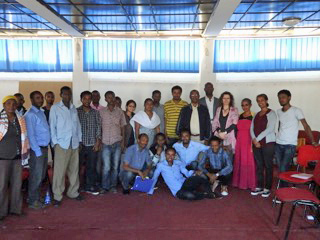
2.2. Psychiatric unit and OPD
Joining Dr. Mamuye Mussie in the OPD and during a visitation of the inpatient psychiatric unit, which consists of two corridors, one for male and one for female inpatients, I saw several clinical pictures. Nearly all of the patients showed severe psychotic states. A very impressive clinical picture showed a woman with symptoms of a culturebound syndrome, thinking that she is possessed by evil forces.
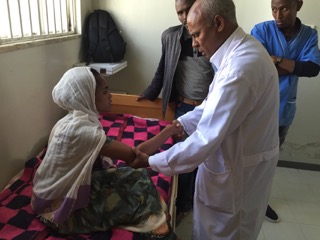 |
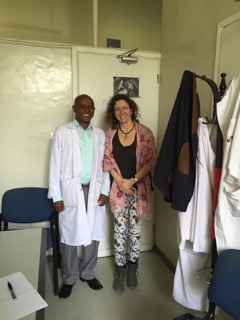 |
2.3. Workshop for Mental Health students
To support the lecturers of Mekelle University in the education of psychiatric nurses, we organized a workshop for the students. The main issue of the workshop was the training of grounding and stabilization techniques, which may be used as crisis intervention in the case of agitated patients or as a relaxation and mental stabilization methods. The nearly 20 students exercised the techniques in roleplays, so that each student was able to teach and train the technique.
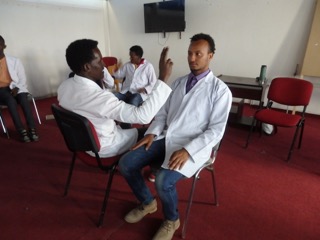 |
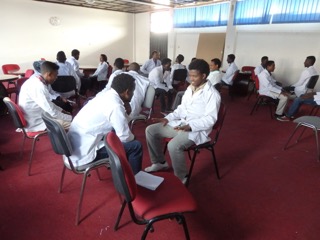 |
2.4. Substance Rehabilitation Center
The Substance Rehabilitation Center was opened in July 2015 and is located in the periphery of Mekelle in a building of the Hope Community, a local NGO. The building has a terrain of 4 ha. Up to 30 detoxicated male patients may stay up to three months for psychosocial therapy to support the prevention of a relaps and a reintegration into society. The screening of patients for admission takes place at the OPD of the psychiatry unit of Ayder Hospital. After admission the patients have to sign a contract including the strict rules of the Center. Patients who are breaking a rule are discharged immediately. A structured daily schedule includes psychotherapeutical single and group sessions, spiritual councelling, relaxation training, self help group supported by the MDOC, sports, worktherapy. The professional teams consists of the manager Etsedingel Hadera, one psychiatrist, one clinical psychologist and 9 nurses, only one of them being a psychiatric nurse.
There are several things to improve in the Rehab Center. The stuff is underequipped having no computer, damaged furniture, limited possibilities for worktherapy and sports. Patients are at the moments only engaged in gardening. There are good possibilities for different worktherapies and sports on the huge areal, but the infrastructure and material is missing.
In the Rehab center I joined a group meeting of all patients and professionals including the cooks and the guards of the institution and some therapeutic groups. I did one relaxion group in English language teaching the patients a breathing technique for cooling down high emotional states, which was a funny experience. We laughed a lot. Dr Tsion helped by translating. The relaxation group is always done in a sitting position, which is a suboptimal position to get into a relaxed state of mind. Gymnastic mats would be very helpful to have to do a sufficient training.
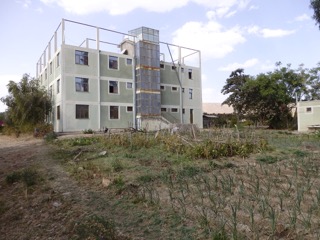 |
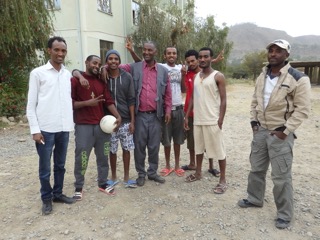 |
3. Plans
All mental health professionals in Ayder Hospital are in need of more psychological and psychotherapeutic competences to improve their daily work.
Proposed activities for the next year are:
- the further improvement of crisis intervention skills and the training of mental stabilization
techniques (workshop for mental health professionals and students)
- lecture about theory and therapy of mental health diseases, especially addiction
(workshop for mental health professionals)
-
- live supervision
-
- case conference
Especially for the Rehab Center, a further hospitation will be useful and the organization of materials (e.g. gymnastic mats, tools for wood or metal work). The training of the nurses would also be a reasonable issue.
Bochum, 12.04.2016a
